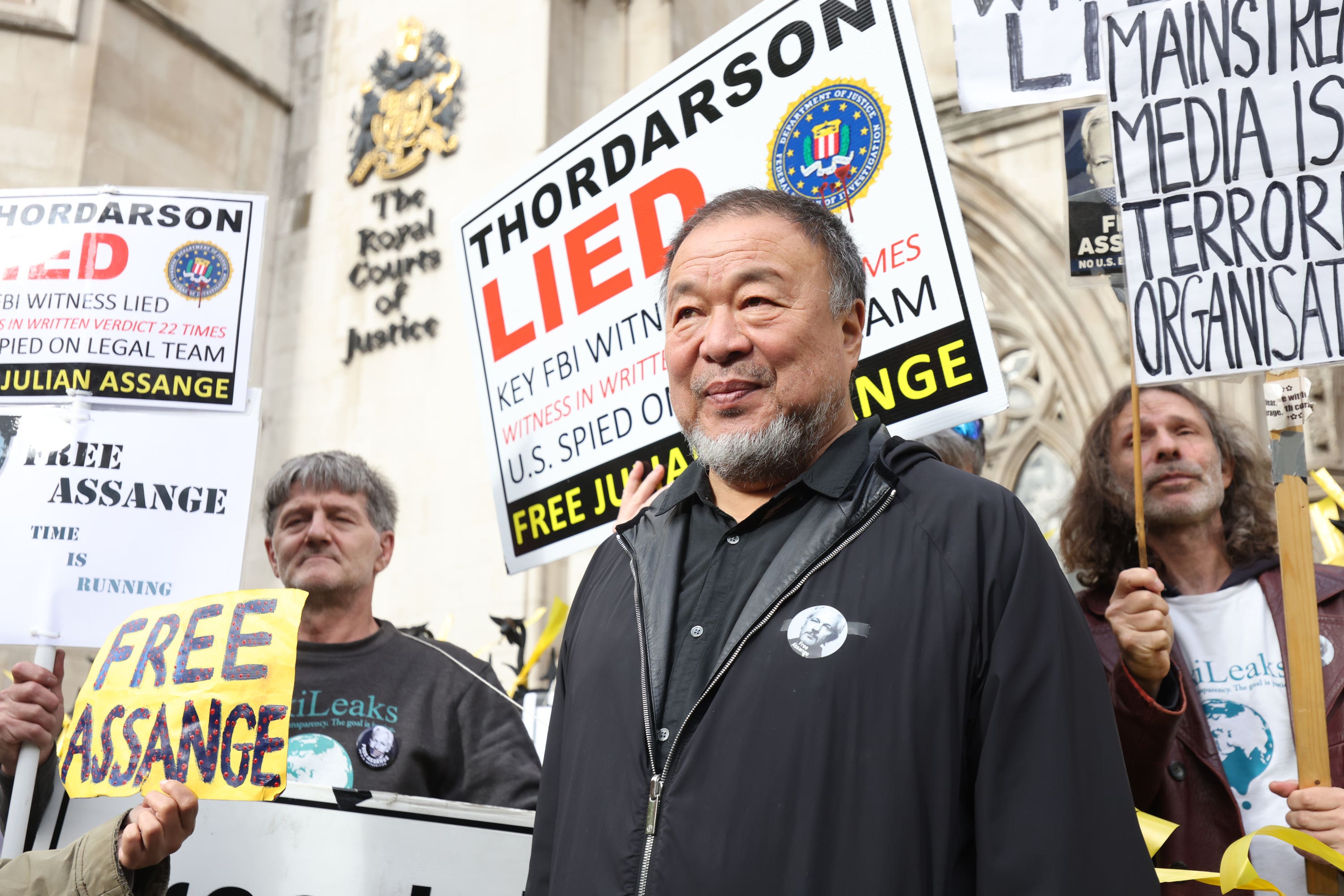Ai Weiwei says censorship in West has become ‘exactly the same’ as in Mao Zedong’s China
Artist saw his London exhibition cancelled over a social media post on Israel and Gaza

Your support helps us to tell the story
From reproductive rights to climate change to Big Tech, The Independent is on the ground when the story is developing. Whether it's investigating the financials of Elon Musk's pro-Trump PAC or producing our latest documentary, 'The A Word', which shines a light on the American women fighting for reproductive rights, we know how important it is to parse out the facts from the messaging.
At such a critical moment in US history, we need reporters on the ground. Your donation allows us to keep sending journalists to speak to both sides of the story.
The Independent is trusted by Americans across the entire political spectrum. And unlike many other quality news outlets, we choose not to lock Americans out of our reporting and analysis with paywalls. We believe quality journalism should be available to everyone, paid for by those who can afford it.
Your support makes all the difference.Political censorship in the West today is “exactly the same” as it was in China under leader Mao Zedong, artist Ai Weiwei has said.
The 66-year-old told Sky’s Sunday Morning With Trevor Phillips that “society becomes so timid, to really avoid any kind of questioning or argument”.
He was responding to a question about the cancellation of his exhibition by the Lisson Gallery in London in November following social media posts regarding the Israel-Gaza conflict.
“I grew up within this heavy political censorship,” Weiwei said, referring to the exile of his own family when he was one year old.
“I realise now, today in the West, you are doing exactly the same,” the activist and documentarian added.
Criticising the suspension of two New York University professors for comments related to Gaza, Weiwei said: “This is really like a cultural revolution, which is really trying to destroy anybody who have different attitudes, not even a clear opinion.
“So I think that this is such a pity, that it happened in the West, so broadly in universities, in media, in every location.
“In universities or political sector – everywhere – you cannot talk about the truth.”
Weiwei’s art often addresses political issues in China and the artist has a history of openly criticising the Beijing government’s stance on human rights and democracy.
When asked whether he believed Western artists were doing enough to defend freedom of expression, Weiwei said they had been “corrupted by capitalism”.
“They are just seeking money and also to be famous,” he added.
In 2011, the artist was arrested at Beijing Capital International Airport and detained for 81 days. He left China in 2015 and has not returned since.
Weiwei said he “never regrets” speaking out.
He said: “I’m defending a value which would profit and benefit everybody.”
“My little experience does not really matter, but rather I somewhat have to speak out,” Weiwei added.
“An artist has the responsibility to do that.”
Weiwei’s graphic memoir, Zodiac, was published by Penguin Random House at the end of January.